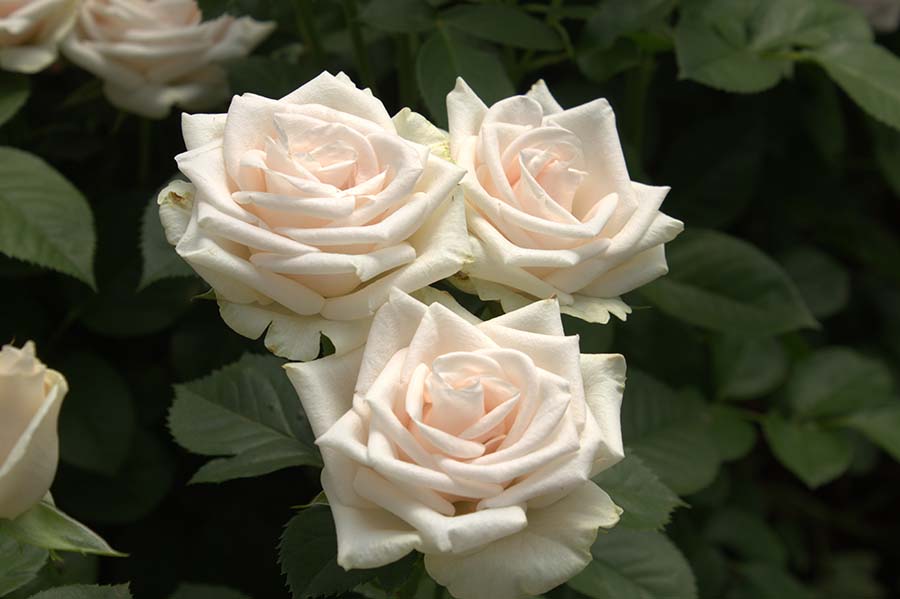October 30, 2025


Editor’s Note
As climate patterns shift and global flower markets demand greater consistency, the message across the floriculture value chain is clear: the future belongs to tailored varieties. These are plants bred not just for beauty, but for performance, crafted to meet specific production environments, logistical challenges, and consumer expectations. For East Africa’s floriculture industry, where altitude, temperature, and export logistics define success, tailored breeding is fast becoming the next frontier.
Breeding for Market Realities
In today’s flower trade, breeding is as much about market intelligence as it is about innovation. The goal is to develop varieties that perform predictably in the greenhouse, travel well in the cold chain, and deliver exceptional shelf life.
Growers want plants that are uniform, resilient, and cost-efficient. Exporters seek flowers that arrive fresh after long-haul flights. Retailers demand durability, and consumers expect value. Tailored varieties bring these needs together, offering genetics that balance productivity, sustainability, and beauty.
Climate-Ready Genetics
East Africa’s highlands, from Naivasha and Nakuru in Kenya to Ziway in Ethiopia and Mbarara in Uganda, are ideal for high-quality flower production. Yet changing weather patterns and shifting pest pressures are forcing the industry to rethink what resilience looks like.
Modern breeding programs are introducing climate-smart genetics that can tolerate higher temperatures, variable light levels, and unpredictable rainfall. These varieties give growers the flexibility to maintain consistent yields and quality while reducing input costs for irrigation, fertilization, and pest management.
For exporters, this adaptability translates into stable supply volumes and fewer rejections in destination markets; a key advantage in an increasingly competitive global marketplace.


Hardiness, Longevity, and Value
The market is shifting towards flowers that last longer, both in the vase and in the landscape. Retail chains in Europe and the Middle East now prioritize varieties with proven vase life and guaranteed flowering duration. Breeding for longevity and uniformity helps East African growers meet these quality benchmarks while enhancing their sustainability credentials.
At the same time, hardy perennial lines and re-blooming varieties are gaining popularity among landscapers and home gardeners, offering a sustainable alternative that aligns with global green trends.
The Power of Trials
Breeding trials and open days are where innovation meets practicality. These events, whether held in Europe or on local East African farms, allow breeders and growers to observe plant performance in real-world conditions.
Such trials are invaluable for understanding how new varieties handle altitude, day length, and soil variation. They also help growers make informed choices about which genetics fit their climate zones and production systems, ensuring consistent quality for export markets.


Collaboration for Progress
The move toward tailored breeding is reshaping collaboration across the floriculture chain. Breeders rely on grower feedback to refine genetics; growers depend on exporters’ market insights; and retailers influence selection through consumer trends. This continuous exchange of knowledge ensures that future varieties are not just attractive, but fit for purpose, bred with the grower and end market in mind.
Looking Ahead
For East African floriculture, embracing tailored varieties is more than a response to change, it’s a proactive strategy for resilience and growth. By investing in genetics designed for specific climates and market channels, the region can strengthen its reputation as a global leader in sustainable, high-quality flower production.
Because the flowers that will define the next decade won’t just be the most beautiful, they’ll be the best adapted.
Why Tailored Varieties Matter for East African Growers
1. Consistent Quality for Export:
Tailored genetics ensure flowers meet strict European and Middle Eastern market standards for size, colour, and vase life, reducing losses during transit.
2. Climate Resilience:
With rising temperatures and unpredictable weather, climate-adapted varieties maintain production and quality across diverse altitude zones.
3. Sustainable Profitability:
Stronger, more adaptable plants mean lower input costs and fewer rejections, supporting long-term economic and environmental sustainability.
NOTE: All pictured Rose varieties are courtesy of United Selections, Icon Selections, and Viking Roses Open Days.
